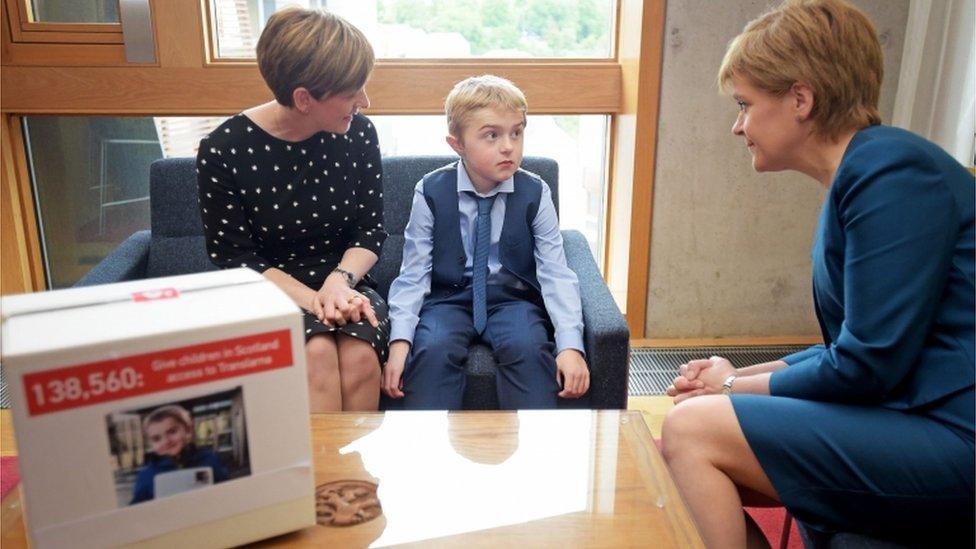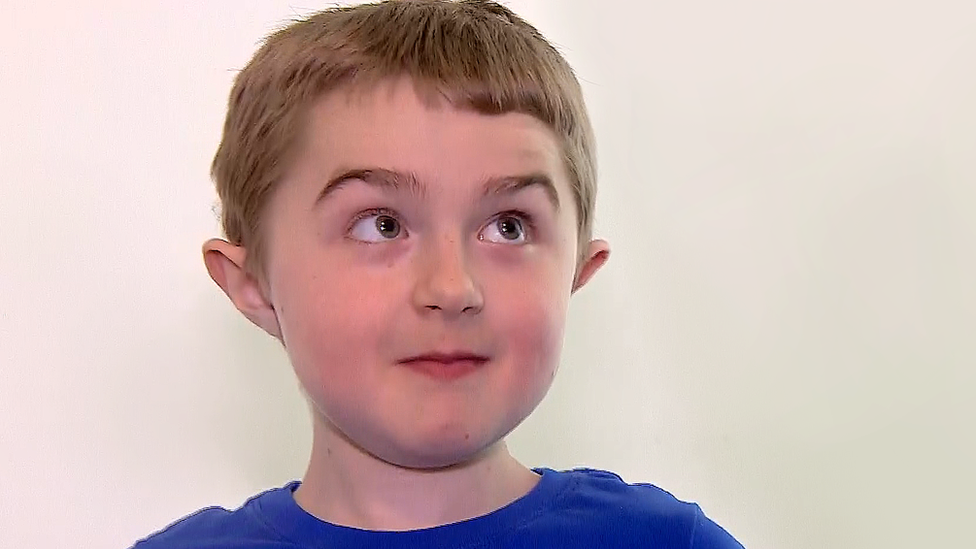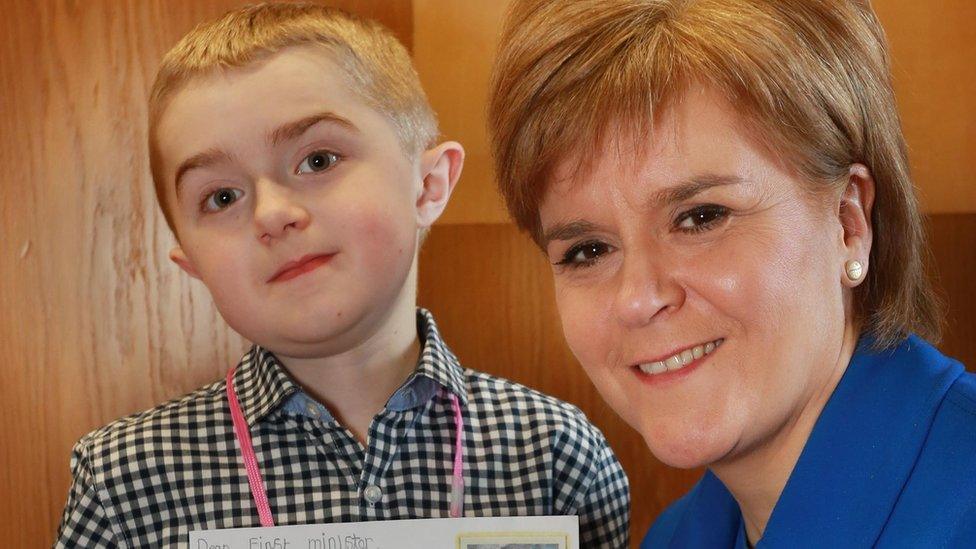Boy's muscular dystrophy drug petition hits 140,000 signatures
- Published

Michael and his mother Michelle met the First Minister
A boy with muscular dystrophy has met the First Minister for a second time after his petition calling for NHS funding for a new drug reached almost 140,000 signatures.
Michael Young met Nicola Sturgeon after the Scottish Medicines Consortium (SMC) refused to approve Translarna to treat his condition.
It said there was too much uncertainty about its benefits in relation to cost.
About 139,000 people have now backed Michael's online petition.
It calls for a rethink of the decision and asks Ms Sturgeon for help.
Michael's mother Michelle Young, 43, said: "There was about 20 people at SMC who voted and assessed it and said 'no', and we have 140,000 saying 'yes, the boys in Scotland should get this medicine'.
"I think that's a clear message to the SMC that they actually need to reconsider their decision."
'Serious concerns'
Five boys in Scotland could benefit from Translarna, with the drug giving them the possibility of being able to walk for longer, according to Muscular Dystrophy UK.
While the SMC rejected the drug, the charity said it had been approved for funding by Nice, the equivalent body in England.
The drug is also available in some European countries, including France and Germany.
Mrs Young said the family, from Larbert, near Falkirk, has "serious concerns" about the SMC process when they are assessing medicines for ultra-rare conditions.
Most of those who suffer from Duchenne muscular dystrophy have to use a wheelchair before the age of 12 and only a few with the condition live beyond the age of 30.
Michael put his case to Ms Sturgeon on Wednesday after having met her at Holyrood in January.
Speaking after the meeting, Ms Sturgeon said: "I am pleased to note that the pharmaceutical company has already committed to going back to the Scottish Medicines Consortium.
"Today, I have written to the company to urge that the resubmission is submitted as a matter of urgency.
"Also, the pharmaceutical company confirmed at a public meeting in Parliament in June last year that it would continue Michael's treatment after the end of the clinical trial."
- Published11 April 2016

- Published28 January 2016
